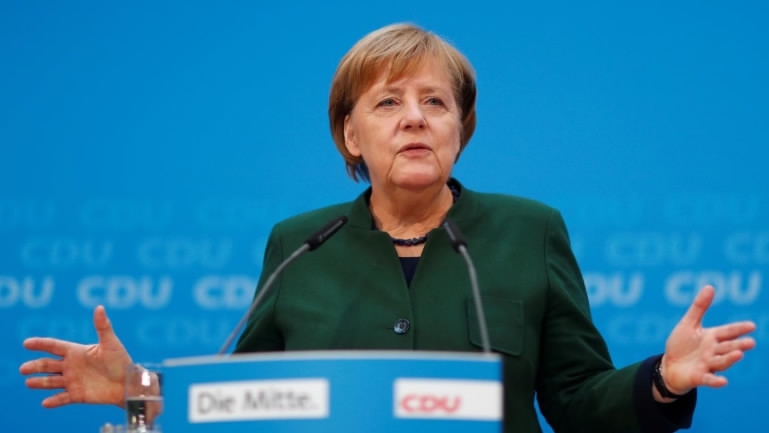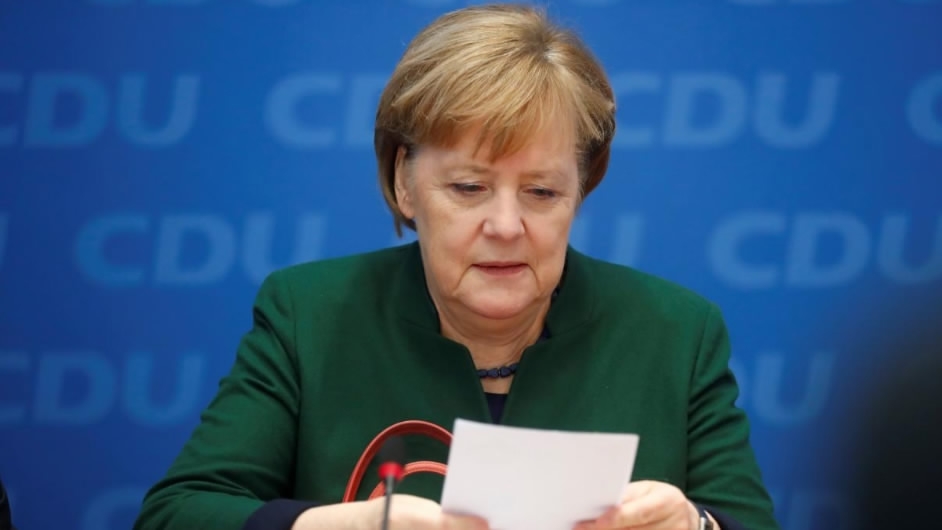
Politics
08:04, 28-Nov-2017
Merkel heads to EU-Africa summit with eye on migrant issue at home
CGTN

German Chancellor Angela Merkel will focus on expanding business ties and trying to regulate migration with Africa during an EU-Africa summit in Abidjan this week, as she comes under pressure at home to make progress faster on both fronts.
Merkel is taking a break from her more than month-long drive to form a new government to attend the summit, keen to demonstrate Germany’s continued ability to act on the foreign policy front, and to underscore her commitment to Africa.
She will join with French President Emmanuel Macron at the summit to focus on education, investment in youth and economic development to prevent refugees and economic migrants from attempting the treacherous journey across the Mediterranean.
Libya is now the main departure point for mostly African migrants trying to cross to Europe. Smugglers usually pack them into flimsy inflatable boats that often break down or sink.
The chancellor told a conservative event on Saturday that she would press for expanded trade ties and investment, while urging African leaders in bilateral talks to accept the return of their citizens who had no right to stay in Europe.
The trip is important for the German leader amid widespread criticism of her 2015 decision to allow in over a million migrants, then mostly from the Middle East and Afghanistan.

Acting Chancellor Angela Merkel attends a party meeting at the Christian Democratic Union (CDU) headquarters in Berlin, Germany, November 27, 2017. /Reuters Photo
Acting Chancellor Angela Merkel attends a party meeting at the Christian Democratic Union (CDU) headquarters in Berlin, Germany, November 27, 2017. /Reuters Photo
She is under pressure at home to avert another migration crisis after losing support to the far right in the Sept. 24 election. Germany is likely to adopt an immigration law of some kind in the aftermath of election losses for mainstream parties.
Experts say the far-right, anti-immigrant Alternative for Germany (AfD) party could see further gains in any new election next year if Merkel fails to convince the Social Democrats to renew the “grand coalition” that ruled for the last four years.
A year after Merkel made Africa a cornerstone of Germany’s presidency of the G20 industrialized nations, illegal migration from Africa remains a concern, with rights groups blasting the EU’s failure to address conditions in migrant camps in Libya and elsewhere.
Merkel has also faced criticism from German companies, who say they risk losing out in the face of burgeoning interest in the region from rivals in France, China, the United States, Britain, India and Turkey.
Germany’s trade balance with African countries expanded 11.2 percent to 13.8 percent in the first half of 2017 after declining slightly in 2016.
“German industry remains underrepresented in these markets of the future,” said Christoph Kannengiesser, director of the German-African Business Association. “Compared to other international firms, German companies are noticeably behind, due to insufficient support from the government.”
Source(s): Reuters

SITEMAP
Copyright © 2018 CGTN. Beijing ICP prepared NO.16065310-3
Copyright © 2018 CGTN. Beijing ICP prepared NO.16065310-3